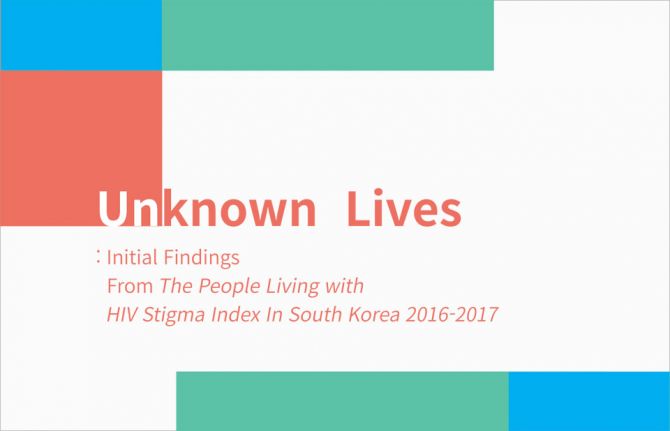

Feature Story
New survey finds high levels of HIV discrimination in Republic of Korea
22 June 2017
22 June 2017 22 June 2017N.C. Cho started feeling run down, with muscle aches and a high fever, in 2014. At the time, he was 32 years old and working in the fashion industry in Seoul, Republic of Korea.
“I went to several hospitals, but nobody could come up with a diagnosis,” said Mr Cho. “Finally, I went to see a third doctor, who did a whole series of tests.”
Little did he know that among the battery of blood work, he was also being tested for HIV.
“I was really angry when the doctor came back and told me I had HIV,” said Mr Cho. “I was educated enough to know that such tests should not be conducted without my consent. “The doctor basically told me you may be able to stay healthy, but you could also get very sick, lose a lot of weight and then die. He gave me some medicine for a cold and made it pretty clear that I should not come back.”
Mr Cho was active in Seoul’s gay community and could turn to peers who introduced him to quality HIV services. He was able to access HIV treatment shortly after his diagnosis and is now feeling fine.
A new survey conducted by the Korean Network of People Living with HIV/AIDS (KNP+) finds that Mr Cho’s experience is far too common for people living with HIV in the Republic of Korea. The Korean People Living with HIV Stigma Index, which is the first peer-led survey in the country to detect and measure how HIV-positive people experience stigma and discrimination, was released on 22 June. Its development was supported by the Global Network of People Living with HIV, the International Community of Women Living with HIV and UNAIDS.
The survey, which was conducted from March to June 2016, found that 62% of people questioned reported that they were tested for HIV without their knowledge. This is high compared to other countries in Asia that have conducted similar peer-led surveys. In Viet Nam, 13% of people living with HIV reported similar experiences and in Nepal the figure was 9%. In addition, 17% of people surveyed in the Republic of Korea said their status was disclosed by medical staff to others without their consent.
“For too long, the voices of people living with HIV have been absent in policy-making,” said Son Mun Soo of KNP+. “This study documents their experiences and shows that the government, employers, health-care workers and communities must do much more to guarantee the rights of people living with HIV. A comprehensive anti-discrimination law must be enacted to protect their rights.”
UNAIDS and the World Health Organization strongly recommend that HIV testing only be undertaken with a person’s informed consent.
“Health-care settings should be stigma-free environments that ensure people living with HIV not only stay healthy, but their loved ones and community are also protected from HIV,” said Steve Kraus, Director of the UNAIDS Regional Support Team for Asia and the Pacific. “It is imperative that we have protective laws and empowered communities.”
The study found that while the general level of education of survey respondents was slightly higher than that of the general population, their employment was more precarious. Only 43% of respondents were full- or part-time employees and 42% were living on less than the Republic of Korea’s minimum household income. About one in 10 respondents who were full- or part-time employees said they had disclosed their HIV status to their employer and about half reported discriminatory reactions.
The survey found that while most respondents disclosed their HIV status to their families out of a sense of obligation, almost 40% reported isolating themselves from loved ones because of their HIV status. Self-stigma was also high among respondents, with 75% feeling self-blame and more than a third experiencing suicidal thoughts.
As the first research of its kind into the stigma and discrimination experienced by people living with HIV in the Republic of Korea, KNP+ views the Korean People Living with HIV Stigma Index as a positive step forward to ensuring that the rights and needs of people living with HIV are protected and met. The study calls for more research on how to strengthen anti-discrimination protection in the workplace and demands training for health-care providers that emphasizes the rights of patients, as well as strong measures and penalties to prevent patient privacy violations.
Mr Cho participated in the study as a peer educator and found the experience empowering.
“There is a lot of self-stigma among people living with HIV,” said Mr Cho. “So I try to portray a positive outlook. I want others to feel positive about their life and to know that they can be HIV-positive but continue to live their life to the fullest.”
UNAIDS is working to empower people living with, at risk of and affected by HIV to know their rights and to access justice and legal services to prevent and challenge violations of human rights.



